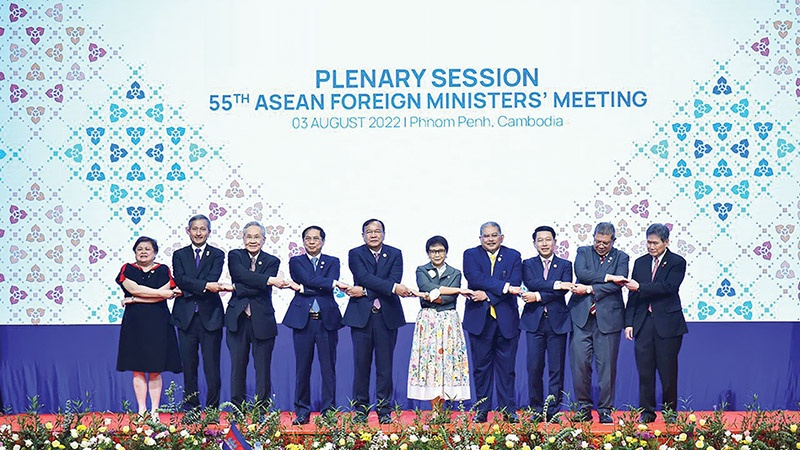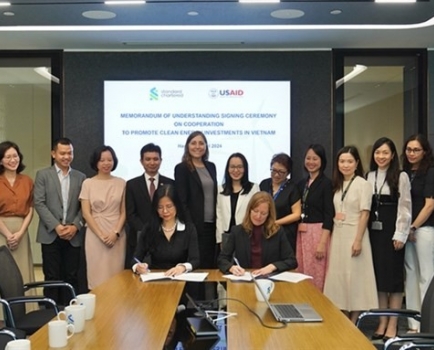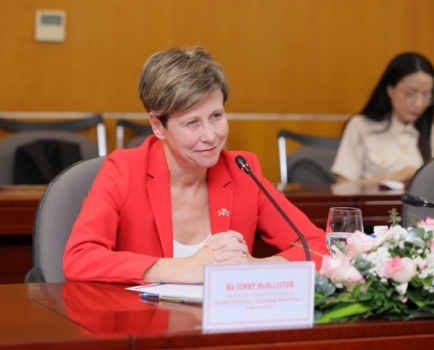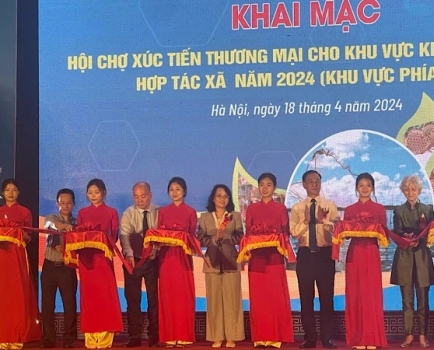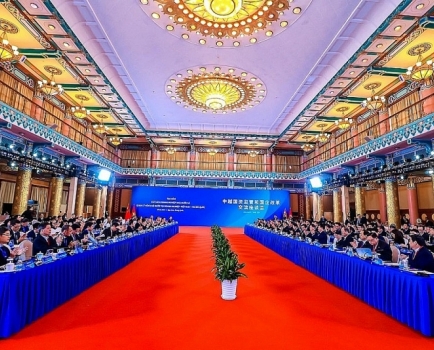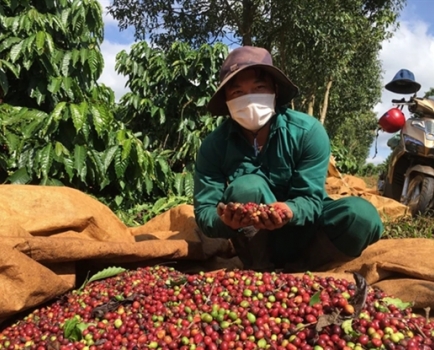ASEAN ramps up sustainable initiatives to combat wider global uncertainties
Sat, 13 Aug 2022 22:37:00 | Print | Email Share:
Vietnam and other regional nations have vowed to advance cooperation in economic recovery including health and energy amidst escalating global crises, with an upgrade of an agreement on trade in goods.
ASEAN member states last week considered an initiative termed the ASEAN Green Deal, which is expected to enable the region to make a gradual transition toward a green future that is sustainable, resource-efficient, resilient, and competitive.
| ASEAN member states vowed to further tighten cooperation in economic recovery, with new actions advanced |
The deal will embrace many sectors such as infrastructure, energy, manufacturing, agriculture, transport, the environment, finance, and innovation.
The member states reiterated their joint commitment to keeping their markets open for trade and investment, promoting and accelerating trade and investment facilitation initiatives, enhancing transparency, and refraining from imposing unnecessary non-tariff measures to ensure supply chain connectivity, particularly for food, medicines, medical supplies, and other essential products.
“Together with efforts in recovery, ministers have underlined the urgent need to boost cooperation in vaccine research and production, strengthening the regional healthcare system. They also underscored the need to further cement and narrow down development gaps, respond to climate change, and ensure food security and energy,” said Vietnam’s Ministry of Foreign Affairs in a statement.
The fresh commitments came at the 55th ASEAN Foreign Ministers’ Meeting held last week in Cambodia at a time of significant volatility and insecurity, including the Russia-Ukraine conflict, the Taiwan Strait tensions, and oil price escalations, which are all harming economic recovery.
According to a joint communiqué released during the AMM, ASEAN’s economic growth could further accelerate to 5 per cent in 2022. It noted that ASEAN’s total merchandise trade reached $3.3 trillion in 2021, of which 21.3 per cent was within the region, while services trade reached $743 billion with intra-ASEAN comprising 11.7 per cent. Meanwhile, inflows of foreign direct investments to ASEAN reached $174.1 billion in 2021, 12 per cent of which was among ASEAN member states.
“We were optimistic that our macroeconomic fundamentals remain robust and committed to continue working together to ensure the region’s recovery from the COVID-19 pandemic and as well as strengthening our region’s collective resilience and competitiveness in the long run,” stated the communiqué.
The Asian Development Bank two weeks ago released its outlook supplement report, stating that Southeast Asia’s economies face the challenges of higher oil prices, the end of low global interest rates, and continuing trade and supply disruptions.
“These factors have dimmed the outlook for some economies in 2022 and 2023. Smaller economies in particular are being more heavily affected by supply disruptions and inflation from higher oil prices. Economies in the subregion with high vaccination rates have yet to see meaningful tourism revivals,” said the report. “Against this backdrop, the GDP growth forecast for Southeast Asia has been revised up slightly to 5 per cent in 2022 from our 2022 projection of 4.9 per cent. The forecast for 2023 is maintained at 5.2 per cent.”
To recover the region’s economy in general and each economy in particular, the 10 member states have vowed to apply many solutions including the acceleration of the negotiations of a new version of the ASEAN Trade in Goods Agreement (ATIGA), first inked in 2009.
“The ATIGA upgrade negotiations are both timely as the region is on the road to recovery from the pandemic and important following the entry-into-force of the Regional Comprehensive Economic Partnership (RCEP) Agreement on January 1,” said a statement from the ASEAN Secretariat.
The ATIGA upgrade underscores not only the region’s aim of accelerating post-pandemic economic recovery but also to ensure that the ATIGA is transformed into a more modern, forward-looking agreement, able to respond to regional and global challenges and contribute meaningfully to deeper economic integration among the ASEAN member states, provide an environment conducive not only to the growth and development of supply chains but also to make them more resilient.
Under the commitments, ASEAN members committed to removing tariffs on 98.6 per cent of all goods and products in 2021. Brunei, Indonesia, Malaysia, the Philippines, Singapore, and Malaysia have eliminated 99.3 per cent of the tariffs and the remaining four (Cambodia, Laos, Myanmar, and Vietnam) have cut 97.7 per cent.
Member states have also vowed to boost post-pandemic recovery, implementing the RCEP which is expected to lift the region’s economy. The RCEP was signed in November 2020 by the 10 ASEAN member states and the bloc’s partners including China, Japan, South Korea, Australia, and New Zealand.
The Vietnamese government in January promulgated Decision No.01/QD-TTg on approving a plan on implementing the RCEP, which will eliminate about 90 per cent of tariffs on trade between the signatories within 20 years. The government is now formulating schemes for assisting businesses to improve their competitiveness so that they can effectively compete with rivals from the RCEP’s member nations.
“Policies to encourage foreign investment into Vietnam will be revised, so that we can attract more investment from the nations into key sectors,” read Decision 01.
Figures from Vietnam’s Ministry of Planning and Investment showed that as of July 20, registered investment capital into Vietnam from South Korea, Singapore, Japan, and China stood at $80, $70, $65, and $22 billion, respectively. Vietnam attracted over $94 billion in registered investment capital from ASEAN member states.
Last week, ASEAN also worked with its partners including Australia, South Korea, the US, the EU, China, and the UK. The bloc and the EU have pledged to promote achieving the strategic objectives of the ASEAN Plan of Action on Energy Cooperation Phase II: 2021-2025 towards enhancing energy connectivity and market integration in ASEAN to achieve energy security, accessibility, affordability, and sustainability.
Meanwhile, ASEAN, China, Japan, and South Korea promised to strengthen collaboration and cooperation in the areas of economic and financial resilience, trade facilitation, investment, digital trade, small- and medium-sized enterprises, green recovery, and sustainable economies.
By: Khoi Nguyen/ Vietnam Investment Review
Source: https://vir.com.vn/asean-ramps-up-sustainable-initiatives-to-combat-wider-global-uncertainties-95598.html
---------------------------------------------
Same category News :



